Albert Einstein is regarded as a great scientist with significant contributions to the fields of science and technology. However, whether he was a good father is a complex issue that can elicit various perspectives.
The genius Albert Einstein was married twice in his lifetime, but he had only three children with his first wife, Mileva Maric. Both Einstein and Mileva were exceptionally intelligent and talented individuals. Notably, Mileva Maric was the only female student studying Physics at the Polytechnic Institute of Zurich (Switzerland), where she met and became acquainted with the brilliant scientist Albert Einstein.
Einstein’s first child was born in 1902 and was named Lieserl Einstein. There are suspicions that her parents gave her up for adoption or that she died at just one year old. Currently, there is no official information clearly documenting the life of Einstein’s first daughter.
Shortly after, the Einsteins welcomed two sons: Hans Albert Einstein (1904) and Eduard Einstein (1910). According to recorded documents, both of these sons faced a series of tragic events in their lives, partly due to the parenting style of their genius father. While the youngest son, Eduard, passed away in a psychiatric hospital, Hans Albert painfully admitted that he was the only “project” that Einstein abandoned.

Albert Einstein with his first wife, Mileva Maric.
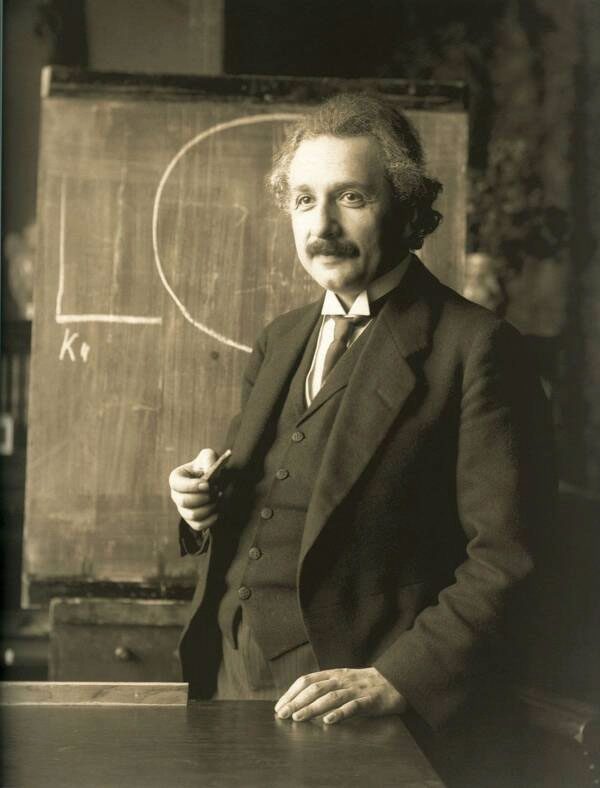
Genius Albert Einstein.
The whereabouts of the genius Albert Einstein’s firstborn child remain a mystery. Meanwhile, both of his sons, Hans Albert Einstein and Eduard Einstein, experienced a series of tragic events in their lives.
Hans Albert: The son that Einstein “abandoned,” a successful career yet never acknowledged by his father
At the age of 10, Einstein’s second son, Hans Albert, witnessed the separation of his parents. The breakdown of their marriage affected his mental state. To fill the void, Hans Albert often isolated himself for hours at school.
Hans Albert passed the entrance exam to the Polytechnic Institute of Zurich (Switzerland), where his parents had also studied. He graduated with a degree in civil engineering, ranking among the top of his class. After leaving university, Hans spent several years as a structural steel design engineer on a bridge project and continued his education.
Despite his outstanding academic achievements, this career choice was not recognized by his genius father. Albert Einstein referred to his son’s career path as “a disgusting idea.” Because of this, for a long time, the two frequently clashed over their differing views on life and careers.
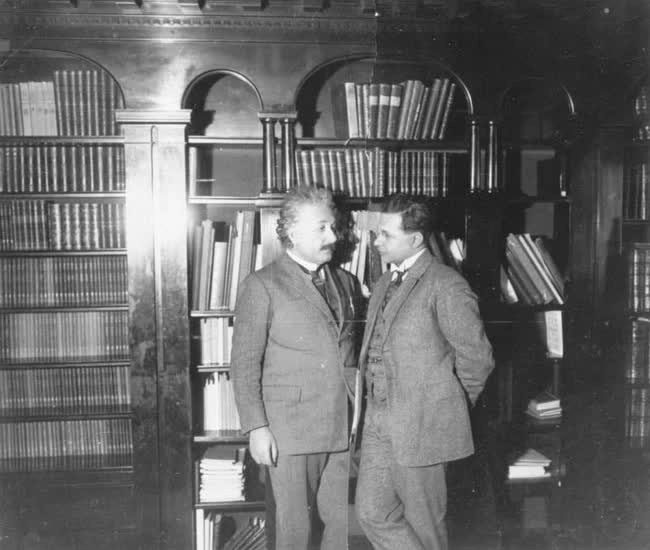
Hans Albert (right) was not acknowledged by his genius father Albert Einstein for many years.
At 23, Hans Albert married for the first time. This choice of partner was once again vehemently opposed by his father, as his wife was not only 9 years older than him but also had a congenital dwarfism condition. Einstein feared that their “bad genes” would adversely affect the next generation.
“If they don’t have children, I can rest in peace,” Albert Einstein once wrote about his second son’s marriage in a letter.
After Hans married, it is believed that he and Einstein gradually repaired their relationship as Hans often sought his father’s advice on career and life matters. Although they managed to mend some of their differences, Einstein frequently reproached Hans for choosing a different career path.
In reality, Hans Albert’s career was considered successful, as he received numerous awards, including the Guggenheim Fellowship, research awards from the American Society of Civil Engineers, and various other accolades from the U.S. Department of Agriculture. However, compared to his genius father, Hans Albert remained relatively obscure and was never acknowledged by Einstein.
In a media interview, Hans Albert painfully admitted: “I might be the only ‘project’ my father abandoned.”
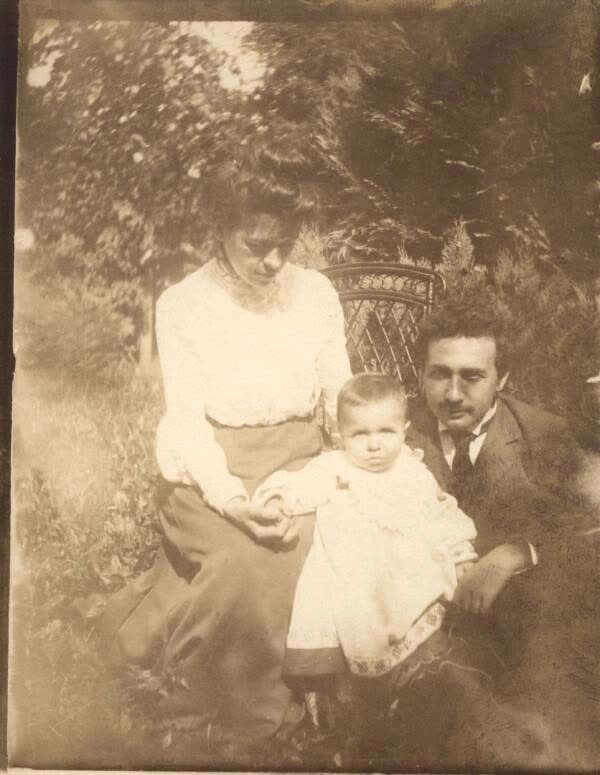
Hans Albert with his parents as a child.
Eduard Einstein: Talented yet life ends in tragedy
In contrast to Hans Albert, the youngest son, Eduard Einstein, was highly regarded by his genius father as someone who could continue his successful legacy. From a young age, Eduard displayed intelligence and musical talent, showing great passion for poetry, piano, and psychiatry.
Unfortunately, Eduard had a frail constitution. In a letter to a colleague, Einstein expressed concern over his youngest son’s health: “I am desperate about the condition of the boy.”
More seriously, despite possessing a genius mind, Eduard was diagnosed with schizophrenia at just 20 years old. Throughout his life, he attempted suicide multiple times but did not succeed. At 22, Eduard had to temporarily halt his education to enter a psychiatric hospital.
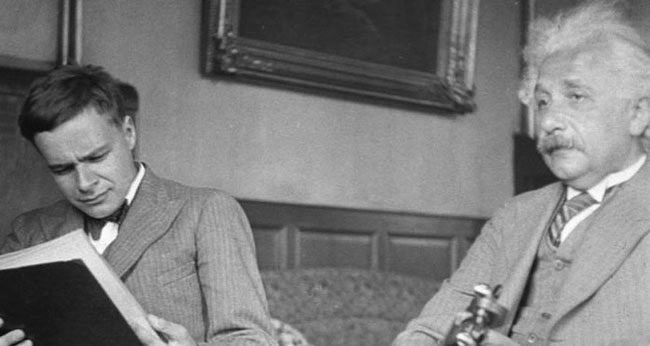
Eduard Einstein (left) possessed a genius mind, was referred to by his father as “the copy,” and was expected to continue Einstein’s illustrious career, yet his life ended in tragedy.
After falling ill, Eduard grew to resent his genius father. Despite this, Albert continued to care for him, covering all of Eduard’s medical expenses. In every letter he sent to Eduard in the hospital, he always began affectionately with “Dear Tete,” signing off as “Papa.”
Unfortunately for the Einstein family, historians believe that the psychiatric treatment methods of that time exacerbated Eduard’s schizophrenia. For 30 years, Eduard was in and out of psychiatric hospitals, with Mileva being the primary caregiver. Although she received financial support from her ex-husband from afar, she still had to sell their home to cover the expensive medical bills. At 38, after her mother passed away, Eduard moved permanently to Burghölzli Psychiatric Hospital (Switzerland).
Witnessing his son alone in the hospital, without anyone by his side, Albert Einstein once exclaimed: “If I had known, I would not have let the boy come into this world.”
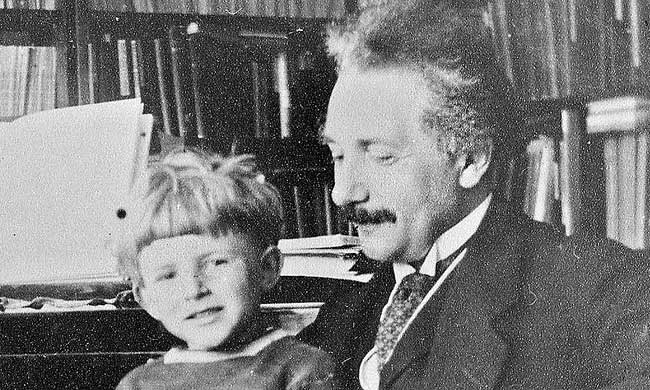
Albert Einstein said of his youngest son: “If I had known, I would not have let the boy come into this world.”
At one point, Einstein had to emigrate to the United States due to the political situation. His second son, Hans Albert, accompanied him, but he could not take his youngest son, Eduard, due to Eduard’s unstable mental condition.
Einstein did not anticipate that this would be the last time he would see his son. At the age of 55, Eduard died alone in the psychiatric hospital. Not long before his death, Eduard told a reporter: “Having a genius father does not help me at all.”
The “cost” of having a genius father
Albert Einstein is undoubtedly a genius scientist, yet whether he was a good father remains a question that many debate. Many believe that both sons, Hans Albert and Eduard Einstein, suffered significant psychological trauma following their parents’ divorce.
According to Walter Isaacson (Chairman of the Aspen Institute’s Education Policy Research), when Albert Einstein’s first marriage to Mileva Maric was on the verge of collapse, the genius scientist proposed a prenuptial agreement. In this, Albert Einstein outlined several strict requirements, including:
- His clothes and belongings must be kept tidy.
- Mileva Maric must renounce any personal relations with her husband if he deemed them unnecessary. Specifically, she would not be allowed to request Albert Einstein to stay home, go out, or travel together…
- Mileva Maric should not expect any intimacy from Albert Einstein and should not blame him in any way.
- Mileva Maric must stop talking if Albert Einstein requests…
Although his wife reluctantly agreed to these terms, their marriage ultimately fell apart.
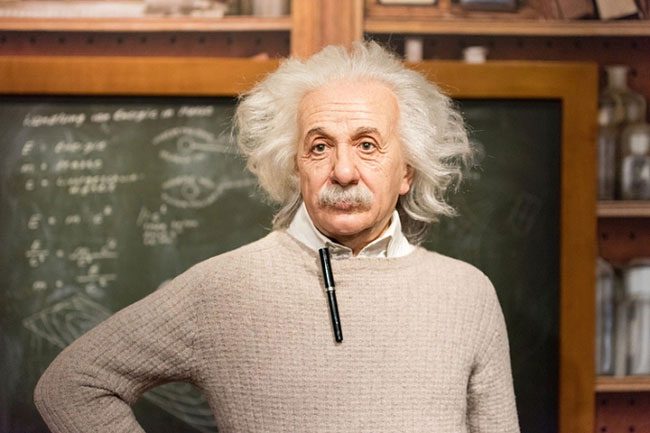
Albert Einstein loved science so much that he was willing to sacrifice time for his wife and family.
In addition, Albert Einstein is regarded as someone who loved science to the extent that he was ready to forgo time spent with his family to nurture his career. Walter Isaacson once said about this genius scientist: “Albert Einstein had a tendency to eliminate any distractions that interfered with his work, including children and family.”
In the days when Hans Albert and Eduard Einstein were young, Albert Einstein still took the time to care for them. However, as time went on, he became increasingly focused on his work. He “ignored” the requests for sharing from his wife and children and doubled down on his professional commitments. This led to a tense atmosphere within the family, making the breakdown in his relationship with his two sons quite understandable.


















































